Best Pipe for French Drains: A Complete Guide
Smooth, plastic, or rigid—the type of pipe that works best depends on your preferences


Wondering about the best types of pipe to use for your French drain? When installing a French drain system in your home, there are three pipe options: PVC, corrugated, and ABS.
Read through the types of pipes in our guide before contacting a French drain installation pro to move forward with the installation.
A french drain provides a sunken channel for water to disperse into the soil surrounding your home. Installing this type of system requires digging a trench and hooking up pipe connections, among other tasks, so it's best to hire a professional french drain installation company for this project.
| Type of Pipe for French Drain | Lifespan In Years |
|---|---|
| PVC | 25–100 |
| Corrugated | 25–50 |
| ABS | 50–100 |
1. PVC
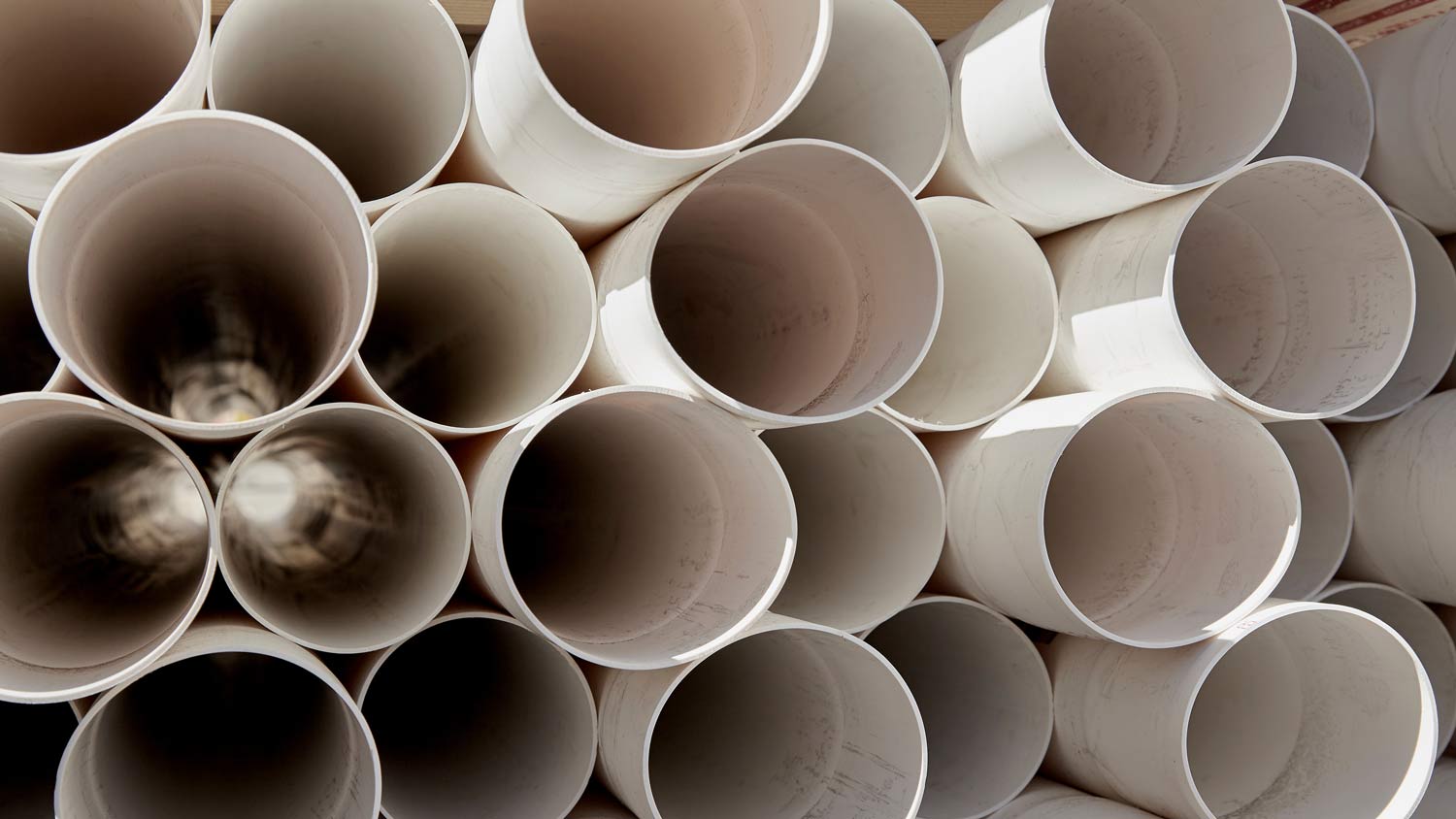
PVC pipe is a very popular and easily accessible material that can be found at your local home improvement store. They’re made of plastic (hence the “P,”) which explains why it’s such a popular, low-cost material. PVC pipe comes in a variety of diameters and lengths, so you’ll likely find a size that fits your French drain’s needs without much trouble.
The downside to plastic piping is that it doesn’t handle major fluctuations in temperature as well as other options. It can sometimes crack when the highs and lows change quickly. If you’re having trouble deciding on a material, you can contact a professional French drain installer who installs French drains to get their expert opinion before making your final choice.
| Pros | Cons |
|---|---|
| More affordable | Cracks under pressure |
| Resist corrosion, rust, and roots | Clog easily if not maintained |
| Easy to install | Limited flexibility |
Best for: Homes in mild climates with less extreme temperatures
2. Corrugated
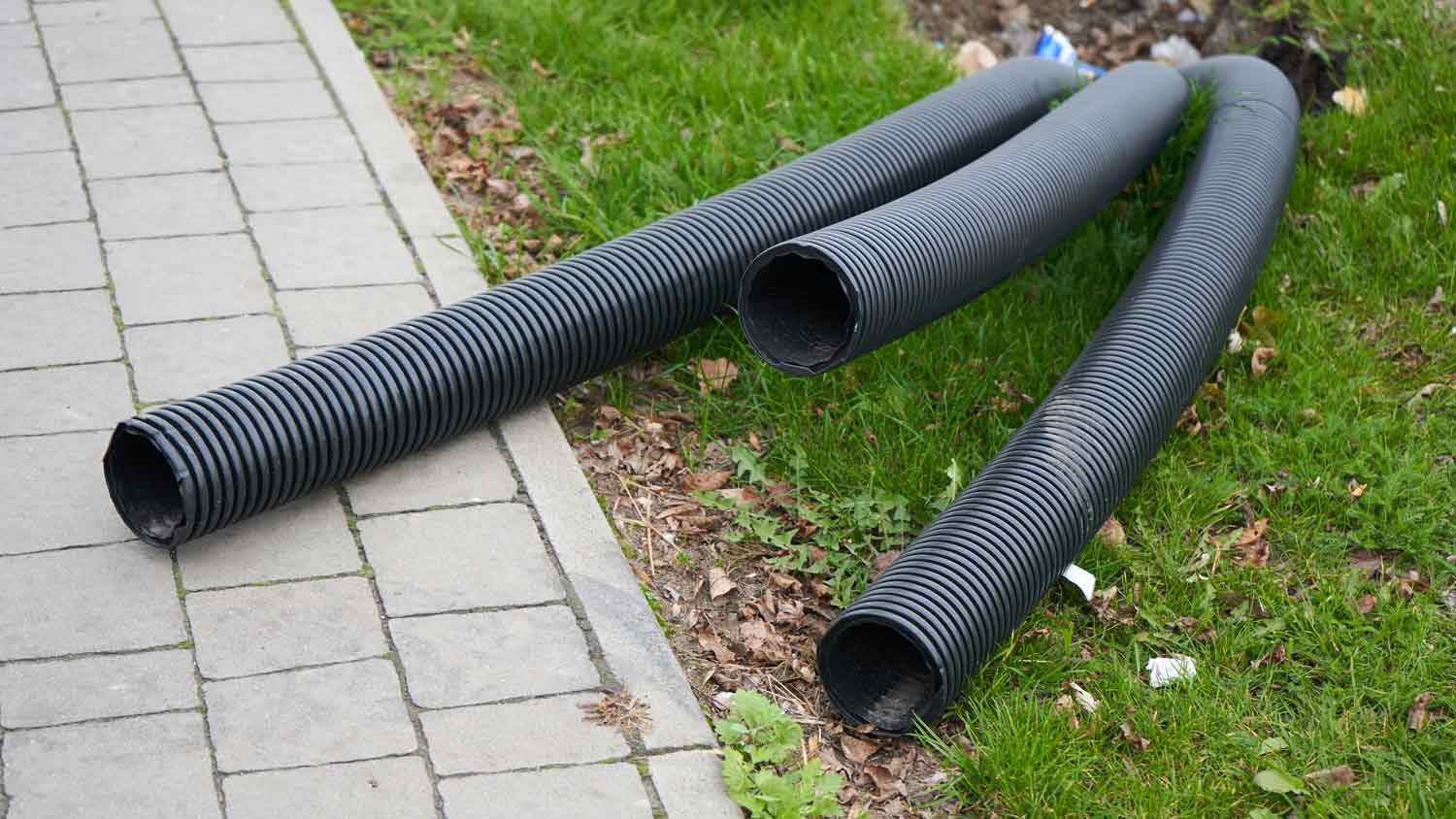
The most common characteristic of corrugated pipes is their rigid, plastic exterior. These ridges provide flexibility and allow the pipe to maneuver and conform to the shape of your yard or landscaping.
Although the exterior ridges make corrugated pipes more flexible, they can also create pockets for sediment and debris that can lead to clogging over time. This French drain option also isn't as resistant to chemicals and sunlight, so they are less durable than other materials.
| Pros | Cons |
|---|---|
| Easy to maneuver | Can clog easily |
| Cost-effective | Noisier |
| Resistant to crushing | More prone to damage |
Best for: Homes with shifting soil and in regions and in moderate climates
3. ABS
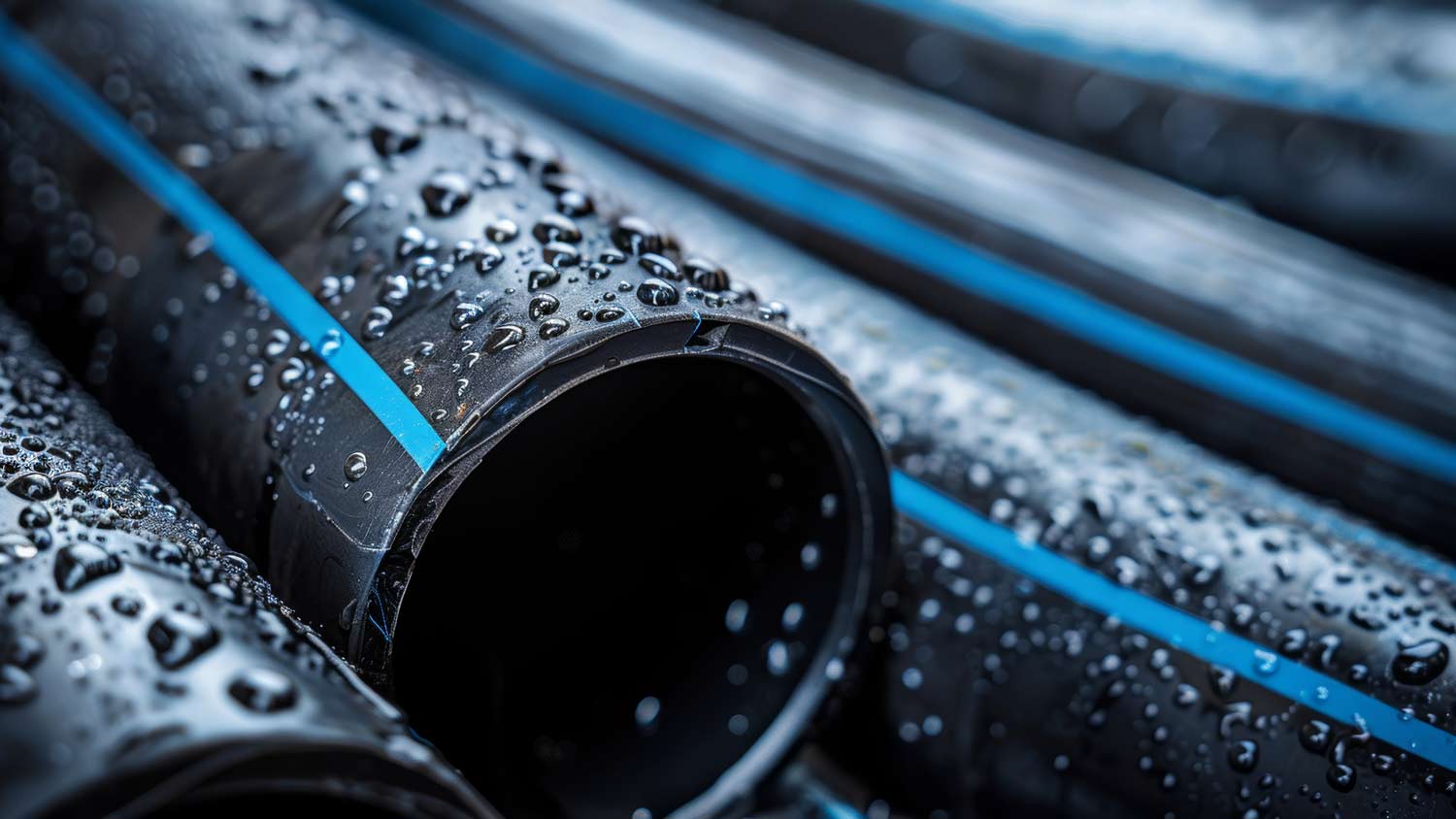
ABS (Acrylonitrile Butadiene Styrene) pipes are known for their durability and resistance to impacts, making them suitable for underground applications, such as French drains. This type of pipe is generally resistant to corrosion and chemical degradation, however exposure to extreme temperatures, sunlight, and aggressive soil conditions can affect their lifespan. Consult a local French drain installer to determine whether this pipe option will suit your yard’s needs.
| Pros | Cons |
|---|---|
| Resists chemicals | Not UV-resistant |
| Durable | Can’t withstand extreme temperatures |
| Promotes good water flow | Not sustainable |
Best for: Underground French drains in regions with mild climates
Can I Repair or Install Pipes Myself?
A French drain provides a sunken channel for water to disperse into the soil surrounding your home. Installing a French drain system requires digging a trench and hooking up pipe connections, among other tasks, so it's best to hire a professional French drain installation company for this project. However, if it’s an above-ground drain, you may be able to make small repairs yourself with the right tools and materials.
How to Choose the Right Pipe for a French Drain
Selecting the right pipe for your French drain system depends on a number of factors, including your home’s soil type, your budget, and whether you need a more flexible pipe to maneuver around obstacles or not. Consider the most important factors to you: If you have a tight budget, you might be better off with a lower-cost material like PVC. The cost of a French drain can range from $500 to $18,000, with an average cost of $9,250, so it’s best to budget accordingly with the help of a French drain professional.
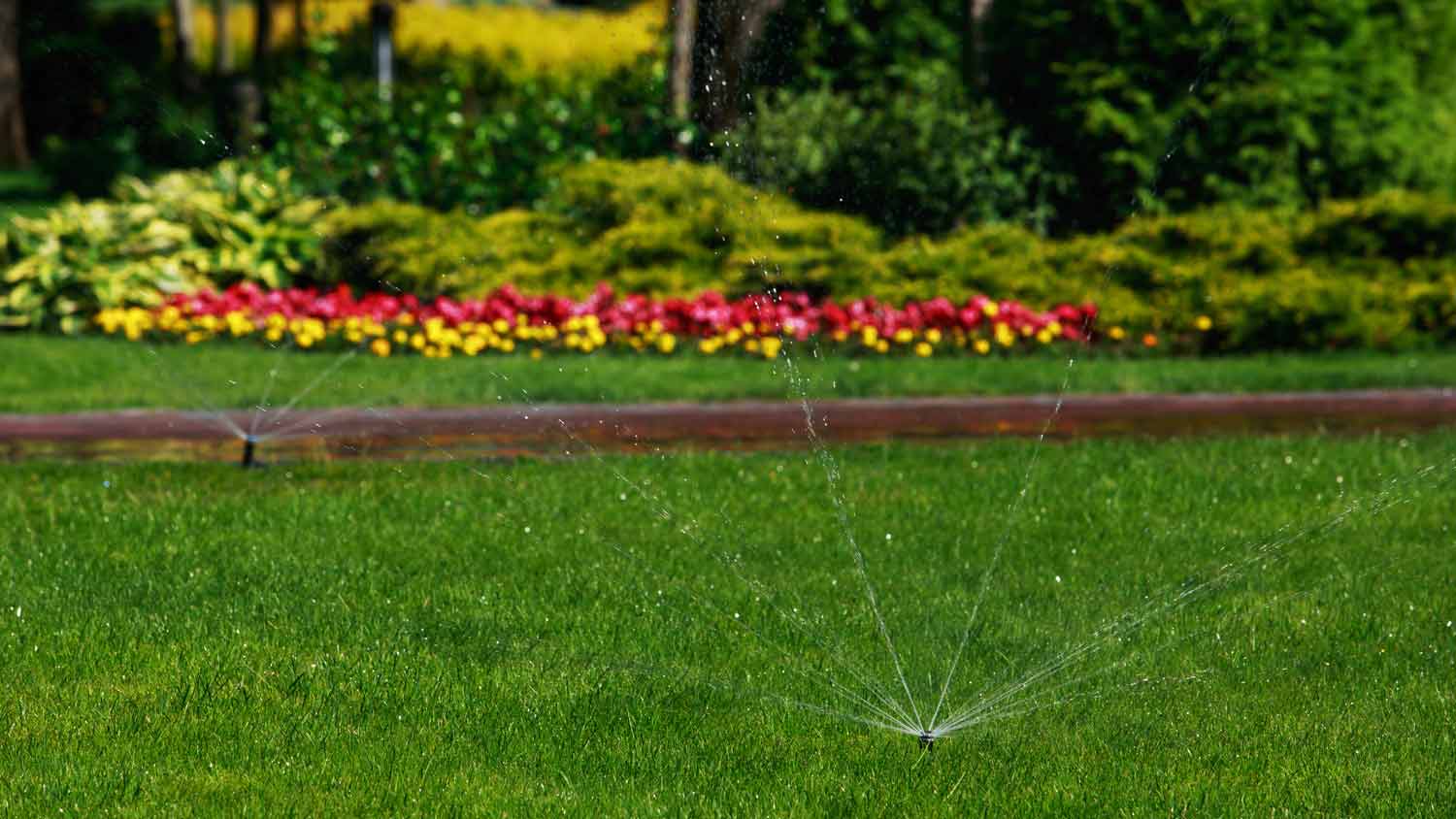


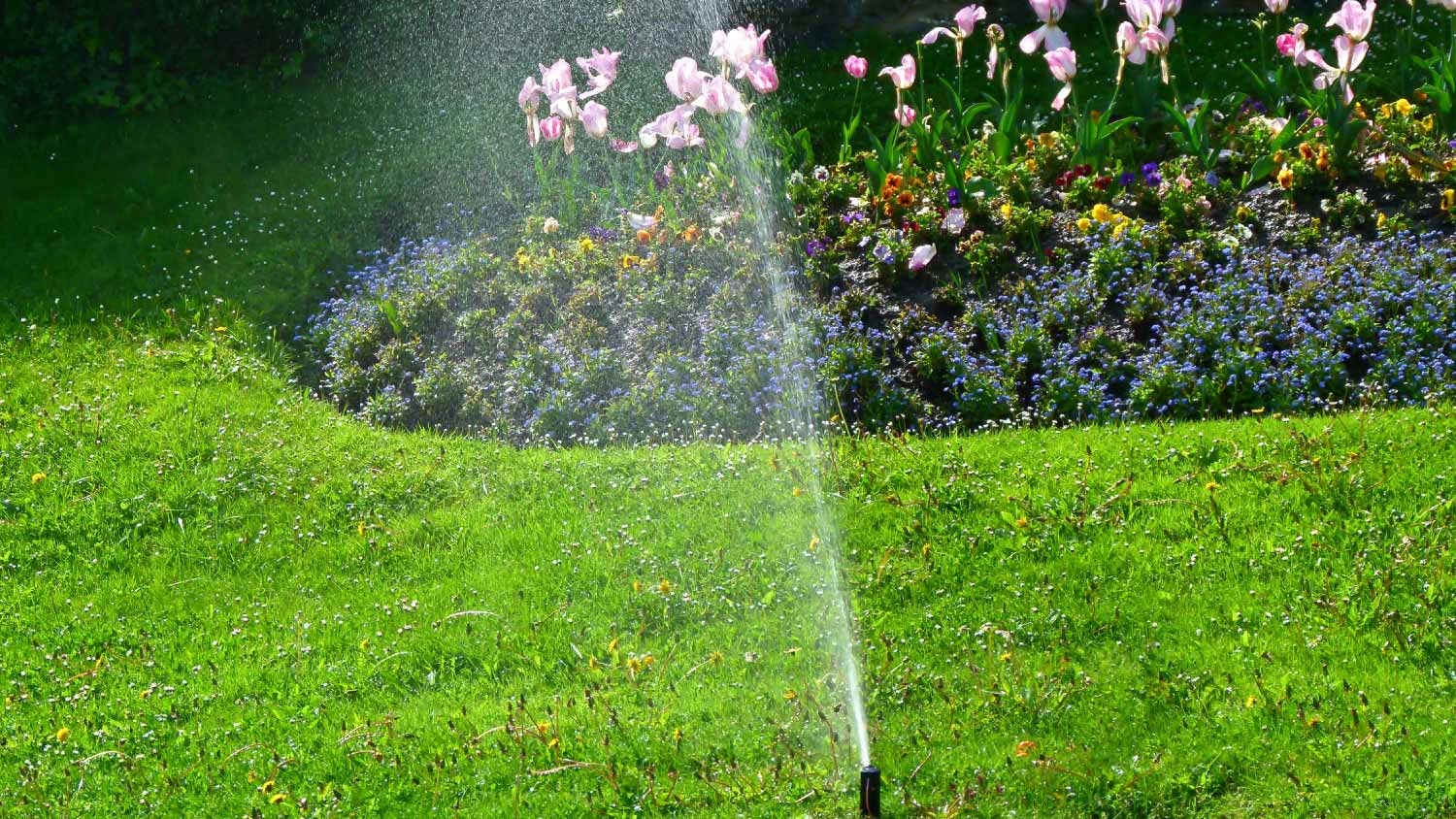

- How Deep Is a French Drain?
- Who Installs French Drains? A Handy Hiring Guide
- What to Know About Putting a French Drain Around a Foundation
- The Best Rocks For French Drains: What To Know
- What Is an ABS Pipe? Pros, Cons, and ABS vs. PVC Pipe
- 6 Reasons Your Bathroom Sink Is Draining Slowly and Potential Solutions
- How to Cut PVC Pipe: The 3 Most Common Methods
- 7 Types of Plumbing Used in Homes and How to Choose the Right One
- 6 Temporary Fixes for Leaking Pipes
- How to Find Frozen Pipes in Your Home
















